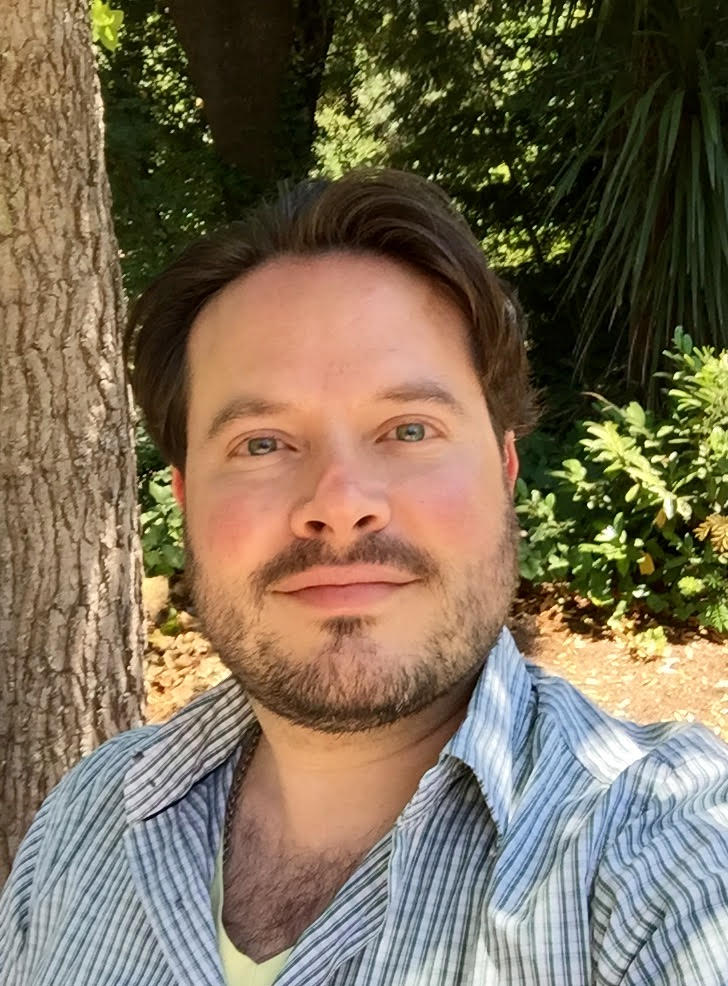Auf Deutsch!
Hallo und guten Tag, San Francisco Girls Chorus!

I’m so happy to be writing this postcard to you all. It’s my first, and I’d like to talk with you about something near and dear to my heart—the German language and Germanic music. Although the Chorus School is preparing for An American Christmas at Davies this year and our premiere performance ensemble is steeped in Italian baroque music for its upcoming TENET collaboration, I believe we are in the midst of one of the most intensive German periods in at least my memory of the Chorus. How do you feel about singing in German? Does it excite you? Scare you? Consider the crisp crackle of its consonant clusters caressing your articulators; its vast vocabulary—one of the largest of any language; and the perilous thrill of pronouncing its every letter and syllable, knowing you'll likely say an entirely different word if you make one small misstep. How could you not love this wonderland of words?
German has been popping up more and more over the last couple of seasons—from the lieder on our “Romantic Imagination” opening concerts last season, to Bertolt Brecht’s sober journey in Ralf Gawlick’s Kinderkreuzzug, which we performed last spring, to the epic An die Freude of eighteenth century poet and playwright, Friedrich Schiller, which members of our premiere performance ensemble sang with Gustavo Dudamel in Beethoven’s Ninth Symphony just last month:
[embed]https://youtu.be/Dg0pM8gTzxQ?t=1h40s[/embed]
It’s no secret that Germany (and its Austrian neighbor) has played a central role in Western music over the last eight hundred years or so. Besides Beethoven, which monumental German composers can you name? If you widen the circle to include Austria, how many more are added? What about a celebrated German who wrote more in Italian and English than his native tongue? (Hint: Hallelujah!) Can you think of any German women who were formidable musicians creating art in the shadows of their more famous male family members, or a medieval nun/mystic/poet/composer who arguably put Germany on the cultural map? SFGC has such a wealth of languages beyond English that our singers know or study—Spanish, Chinese, Japanese, French, Russian are all spoken by more than a few of our choristers. But, I know of only one or two who speak German, natively or otherwise. (If you do and I've not had the chance to shamble through a conversation with you, please let me know!) Yet, this relatively unfamiliar language is a staple of voice studios, college music programs (I began my German study spending one college summer living in Salzburg, Austria—who was born there?), choirs, and opera companies.

That is why our Alumnae Artists—twelve laureates who are now focusing on their solo voices and individual artistry in weekly classes with me and collaborative pianist Margaret Halbig—will be starting a unit on German language and repertoire next week. In fact, the AAs had an opportunity to attend a very special performance by three Lieder Alive! singers at the German Consulate of San Francisco this past weekend. Lieder Alive! is an organization dedicated to keeping the love of art song in German thriving. They frequently share our space at the Kanbar Center, and they hosted our young women at the Consulate, so we thank them for their generosity and support of the Chorus and the art of singing!

Likewise, several of our older choristers had the opportunity to be guests of the fantastic San Francisco Symphony, for Hungarian pianist and conductor András Schiff's recital/choral concert/liederabend this weekend. They heard a Mozart piano concerto, lieder of Franz Schubert sung by a quartet of soloists, and then those same soloists with the Symphony Chorus in Haydn's Lord Nelson Mass. This spring, our premiere ensemble will sing canons by Haydn, and I'll be working with our Level IV choristers on a Schubert song or two this spring in voice classes. Does anyone have a favorite lied to recommend?

Ach, it seems I've written you more of a letter than a postcard, but I hope I've made a case for a language I love and inspired you to explore more music in German. We'll all have the opportunity soon enough in upcoming repertoire, and I look forward to your questions and thoughts about your experiences.
Auf Wiedersehen, Freunde!
Justin Montigne San Francisco Girls Chorus School Director of Voice Studies
